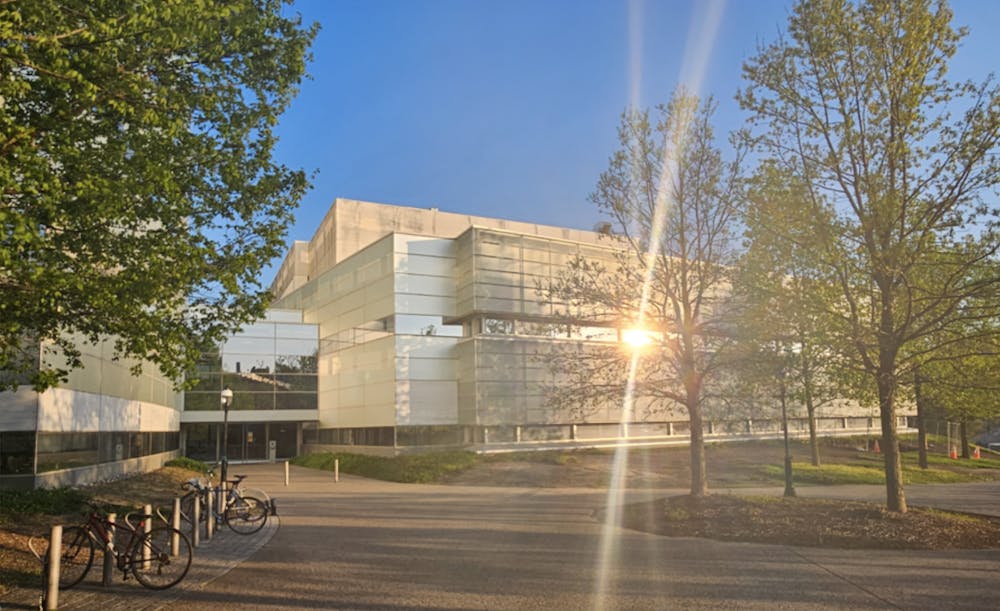A group of University graduate students are conducting a study on graduate student mental health (GSMH) at Princeton. The GSMH project started in 2017 by a group of graduate students in the psychology department, led by recent graduate and founder Abigail Hoskin GS ’23. Today, along with Hoskin, the project is carried on by two current graduate students, Edan Daniel-Hertz GS in the neuroscience department, and Dan-Mircea Mirea GS of the psychology department.
A key finding of their work is that depression is prevalent among Princeton’s graduate student population, ranging from 22 percent in 2019 to 28 percent in 2020. This is over five times greater than a nationally representative sample of adults with college degrees at 4 percent.
In a time when the Undergraduate Student Government (USG) has made mental health a priority and worked with the administration to prioritize reforms, graduate student mental health is equally relevant. A majority of graduate students have also signed a union card for the Princeton Graduate Student Union (PGSU) this term, citing deficiencies in stipends and pay, two factors which can be correlated to mental health.
For those who run the project, it is personal. Hoskin, Daniel-Hertz, and Mirea spoke with The Daily Princetonian about their motivation for getting involved, aspects of the study, and significant findings so far.
Hoskin’s interest stemmed from both observing her peers and her own desire to understand how we think.
“Grad school seemed like it should be magical. And even though a lot of people are having a great time, it seems like a lot of people weren’t as well,” Hoskin said. “As a grad student in psychology, I wanted to just understand that a little bit better. And then also on the flip side, some people are doing great, so, what’s their secret? What predicts resilience?”
Daniel-Hertz said he was inspired to share information about a topic personal to him and expressed a similar sentiment as Hoskin.
“Getting the numbers behind a topic that all graduate students think about — mental health — is kind of cool and as a research scientist, really fun,” he said.

Mirea agreed and summed up the project: “Research is me-search.”
The study has three main research goals: to establish the prevalence of anxiety and depression among graduate students, to understand the protective and risk factors for mental health, and to examine the trajectory of mental health outcomes throughout graduate school.
Hoskin described the protective factors for graduate student mental health that the team examined. The survey asked about the quality of the student-advisor relationship, strength of the students’ support network, experiences of sexual misconduct or racial discrimination, work-life balance, career concerns, commute to class, teaching loads, and personal finances.
These factors were all significant, but the largest relationships were between work-life balance and having a support system at the research group level. For sciences and engineering, the support system is normally the research lab. For humanities and social sciences, the support system is normally the student’s advisor.

The study found that the better the work-life balance and the larger a support network a student has, the better their mental health. University support and career earnings were also associated with positive mental health.
There were additional heterogeneous effects. For example, on average, engineers tended to have the best outlook on their career earnings, and humanities the worst.
When examining domestic versus international students, Mirea highlighted another project’s finding: There was a notable gap between domestic students being more confident in their career earnings, compared to their international peers. Subgroups by identities are not further delineated due to statistical power as well as anonymity protocols set by the Internal Review Board (IRB).
Mirea was drawn to the reasons people reported not seeking care. Most common was people thinking their problems were not severe enough, followed by their skepticism of therapy or having scheduling issues. Mirea said it is “good” that personal finances ranked low as a barrier at Princeton, but emphasized that more could be done in outreach and education. He also noted that scheduling was less of a barrier in 2020 when telehealth was more common.
Since the researchers know their population of interest, Princeton graduate students, they can ensure that their data is representative of the Princeton graduate student population. Although the project originated at Princeton, there are now surveys in Israel and Romania, allowing for cross-cultural examinations.
The study is longitudinal, so the researchers can track mental health effectively over time, sensitive to changes in policy which may coincide with the study interval. The study has just completed the fourth year of data collection.
Daniel-Hertz highlighted that the longitudinal aspect allows for tracking individuals overtime and said that their data suggests that “above and beyond selection bias, there is an effect of progression through graduate students … where people in higher class years have higher levels of depression and anxiety.”
The team seeks actionable steps from their study, ultimately allowing for policy recommendations. They have shared their data with administrators at the McGraw Center for Teaching and Learning and their data is being used to shape mentoring programs for faculty
The team all had distinct takeaways when applying their research to improve mental health and mental health policy on campus.
Mirea emphasized the role of resources and in addition to expanding access, saying, “I would just tell people to try therapy and to try the resources on campus.”
“[The resources are] really good, even though they have limitations … maybe it doesn’t work for everyone. But it would be ideal if all the students at Princeton at least tried the mental health services on campus,” he said.
In the meantime, Daniel-Hertz and Hoskin offered advice for their fellow graduate students, as well as advisors and principal investigators (PIs). “Make sure that you set goals not only on the professional level, but also in terms of how much time you dedicate to your social networks, and what is the work-life balance you aim to have,” Daniel-Hertz said, directing her advice to graduate students, particularly first-years.
She continued, “That will set you up for a more happy and efficient grad experience. And as we see it, it goes together. So it’s not a waste of your time, it’s a good investment of your time.”
Hoskin echoed the importance of work-life balance. She described evidence showing that in addition to happiness being intrinsically worthwhile, happy students are more productive and are more likely to stay in academia. She emphasized the roles of PIs and advisors in shaping this type of environment.
She called on PIs to “promote good research standards, promote good work-life balance, promote good community and the supportive social network within your research.”
Emily Miller is a News contributor for the ‘Prince.’
Please send any corrections to corrections[at]dailyprincetonian.com.








